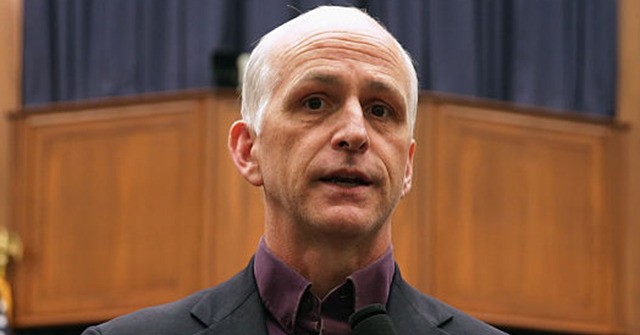On a recent episode of NewsNation’s “Cuomo,” Congressman Adam Smith (D-WA) offered a critical perspective on the fiscal challenges facing the United States, emphasizing the disconnect between policy promises and economic realities. He articulated that many Democrats engage in misleading fiscal arguments, claiming that increased spending can lead to savings, a notion he derided as “theoretical B.S.” that would confound an accountant. Smith’s comments reflect a broader frustration with the budgetary ideas being propagated in political circles that do not withstand scrutiny when examined through the lens of sound fiscal management.
Smith pointed out an essential truth about the country’s financial situation: Americans desire significantly more in goods and services than they are willing to pay in taxes. He quantified this by suggesting that there exists a roughly $5-to-$1 ratio between desired spending and tax revenue. This imbalance creates an unsustainable fiscal framework, wherein politicians have skillfully crafted narratives to convince the electorate that such a discrepancy can be resolved without pain or sacrifice. Smith’s characterizations indicate that both parties may be complicit in perpetuating this unrealistic financial outlook to garner voter support.
He elaborated on the Republican stance, which often includes claims that cutting taxes does not impact overall revenue. In what can be seen as a critique of both party strategies, Smith admitted that many Democrats propose spending initiatives that tout massive returns on investment, sometimes as high as $13 saved for every dollar spent. He condemned such assertions as fanciful and misleading, ultimately contributing to a growing national deficit that has swelled to an alarming $35 trillion. This indicates a significant distrust of overly optimistic projections that favor fiscal irresponsibility over a realistic appraisal of the nation’s budgetary needs.
Another dimension of the discussion highlights the lack of concrete solutions proposed by the Republican Party concerning spending cuts. Smith asserted that while they criticize tax revenue reductions, they have not provided specific measures that would effectively curtail government expenditure. This absence of a coherent strategy showcases a fundamental issue in political dialogue where critiques abound, but actionable solutions remain elusive. Without precise plans to address the budget deficit, such debates risk descending into partisan rhetoric rather than fostering constructive fiscal reforms.
Smith’s comments underscore a need for a more honest discourse around fiscal policy in American politics. Rather than indulging in theoretical claims that do not align with economic realities, he suggests that policymakers should advocate for responsible government spending and revenue generation that realistically reflects public needs and expectations. Acknowledging the true state of fiscal affairs is crucial for the long-term sustainability of the nation’s economy, and it requires courage from leaders to confront uncomfortable truths rather than catering to populist sentiments.
In summary, Congressman Adam Smith’s critique of both Democratic and Republican approaches to fiscal policy emphasizes a pressing need for realism in budget discussions. By highlighting the gap between desired government services and tax revenues, he calls into question the viability of existing economic policies. As the national deficit continues to rise, Smith advocates for a rigorous examination of spending and revenue policies, stressing the importance of providing the public with honest, clear, and actionable solutions to America’s fiscal dilemmas.

